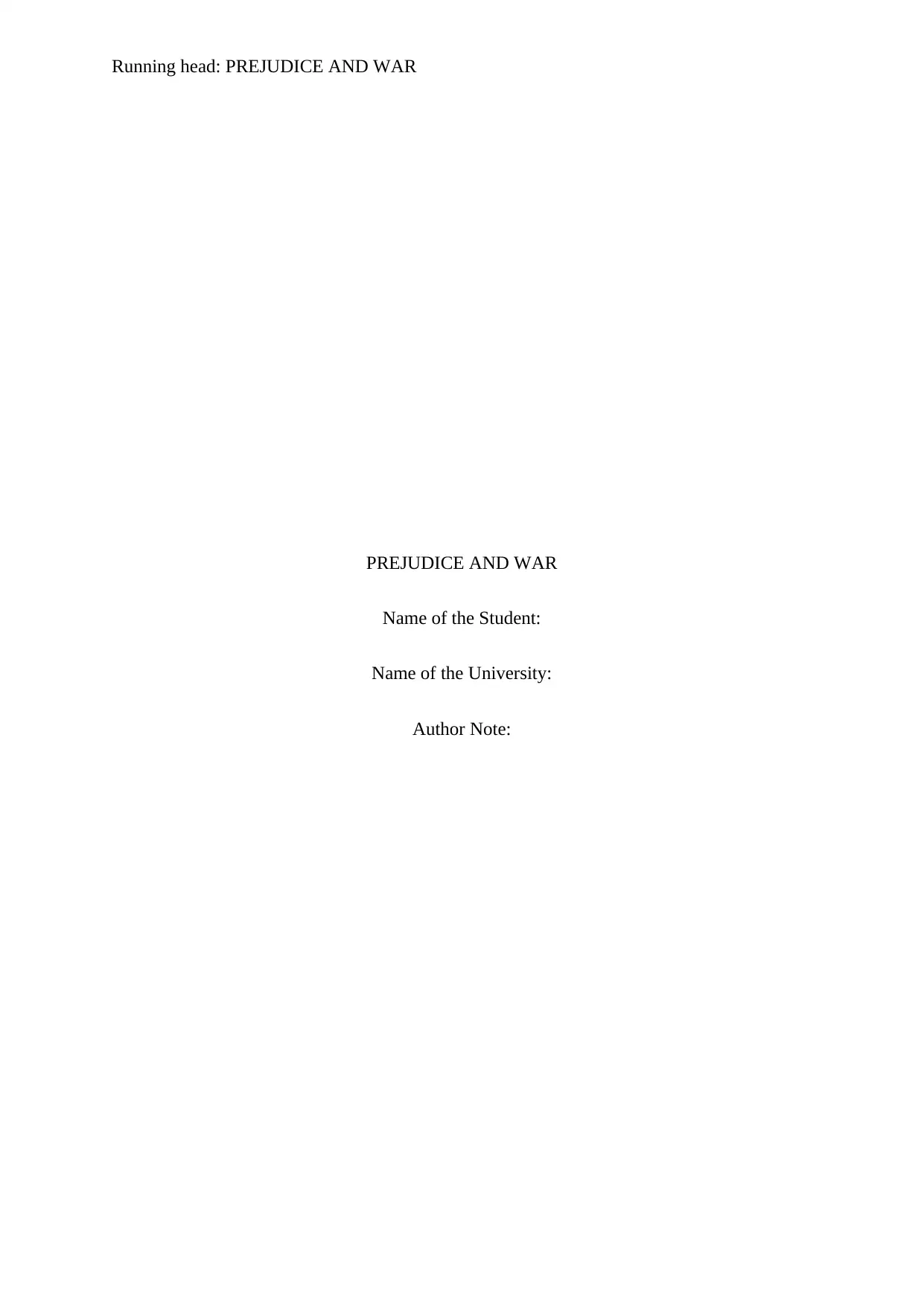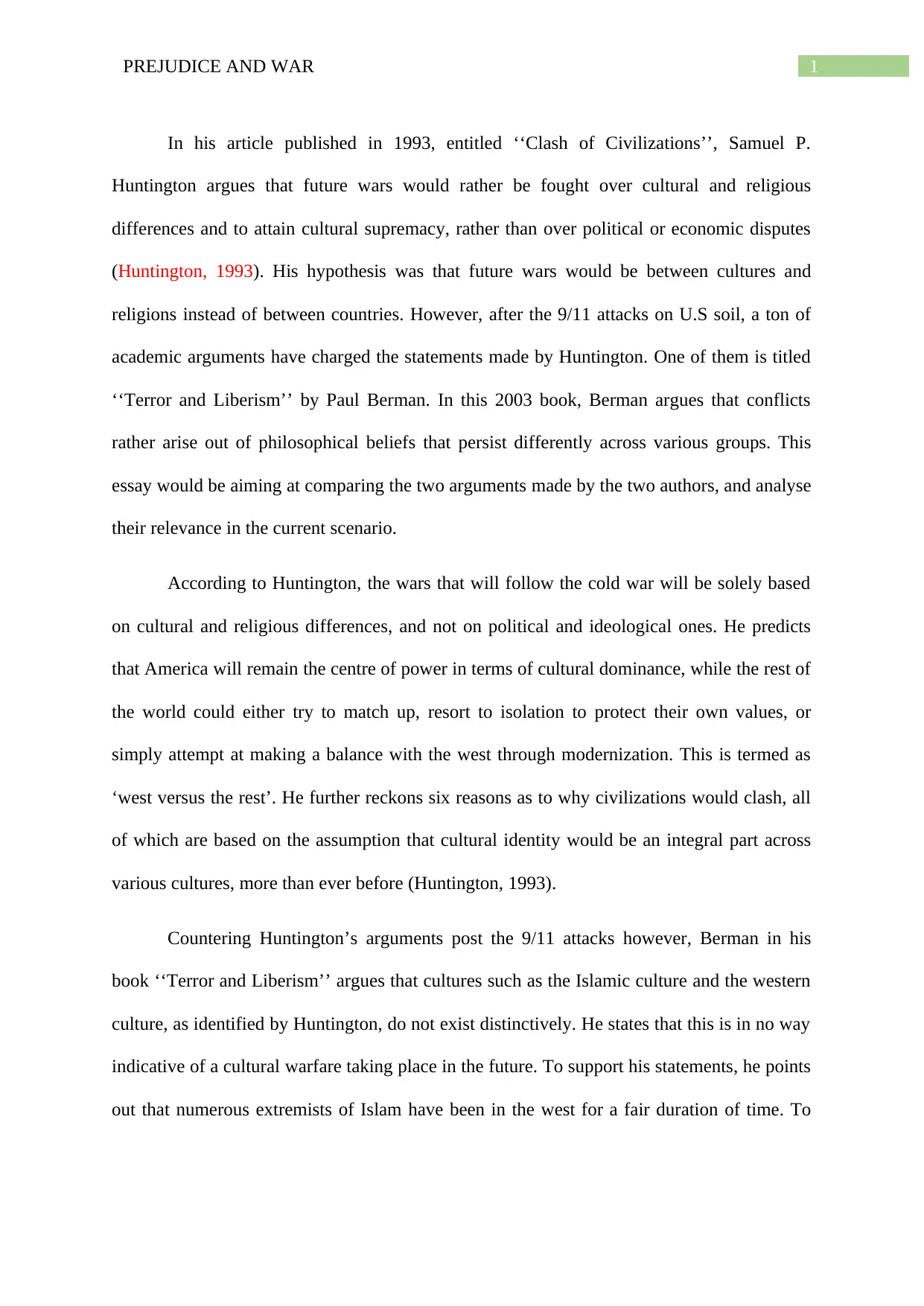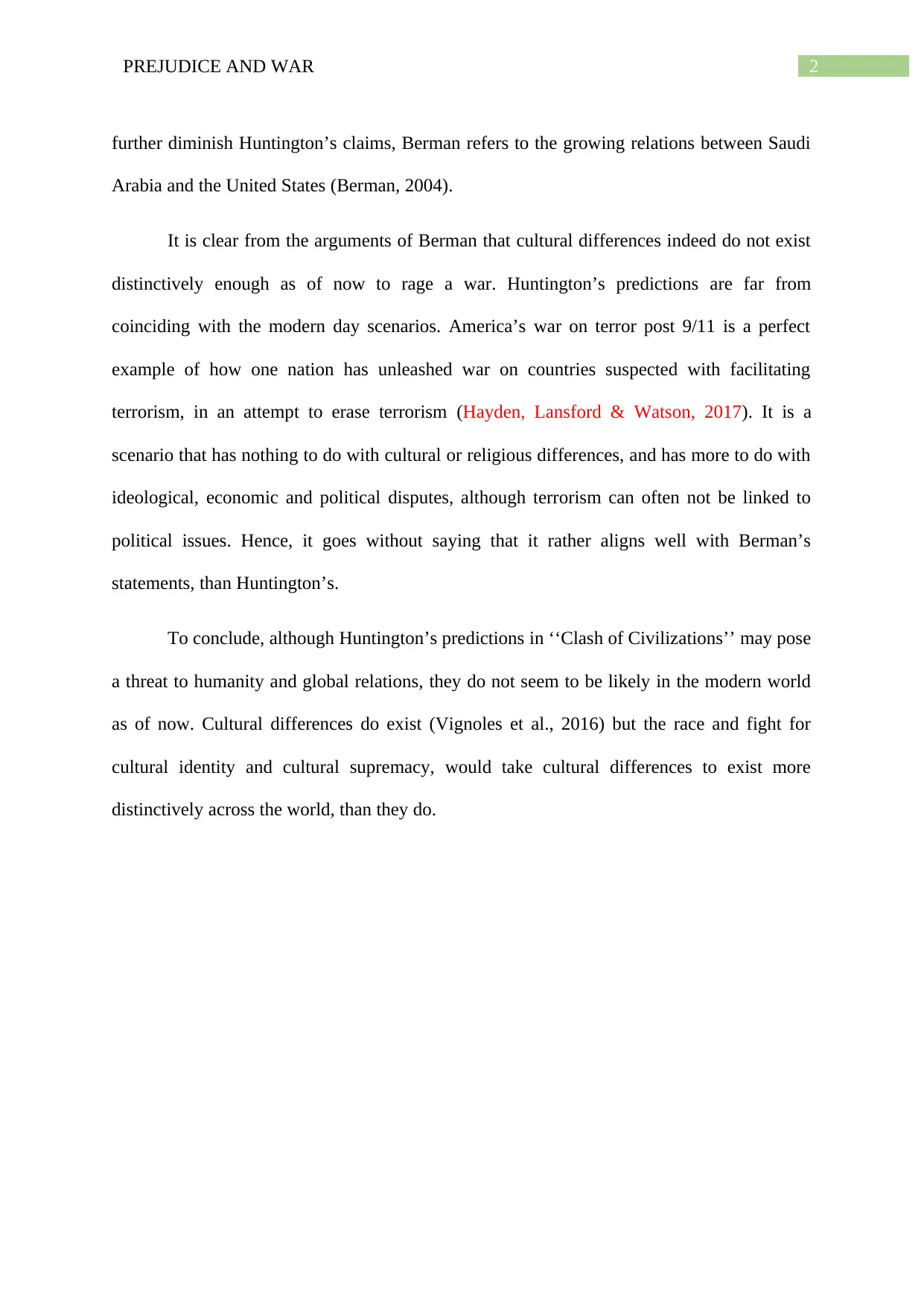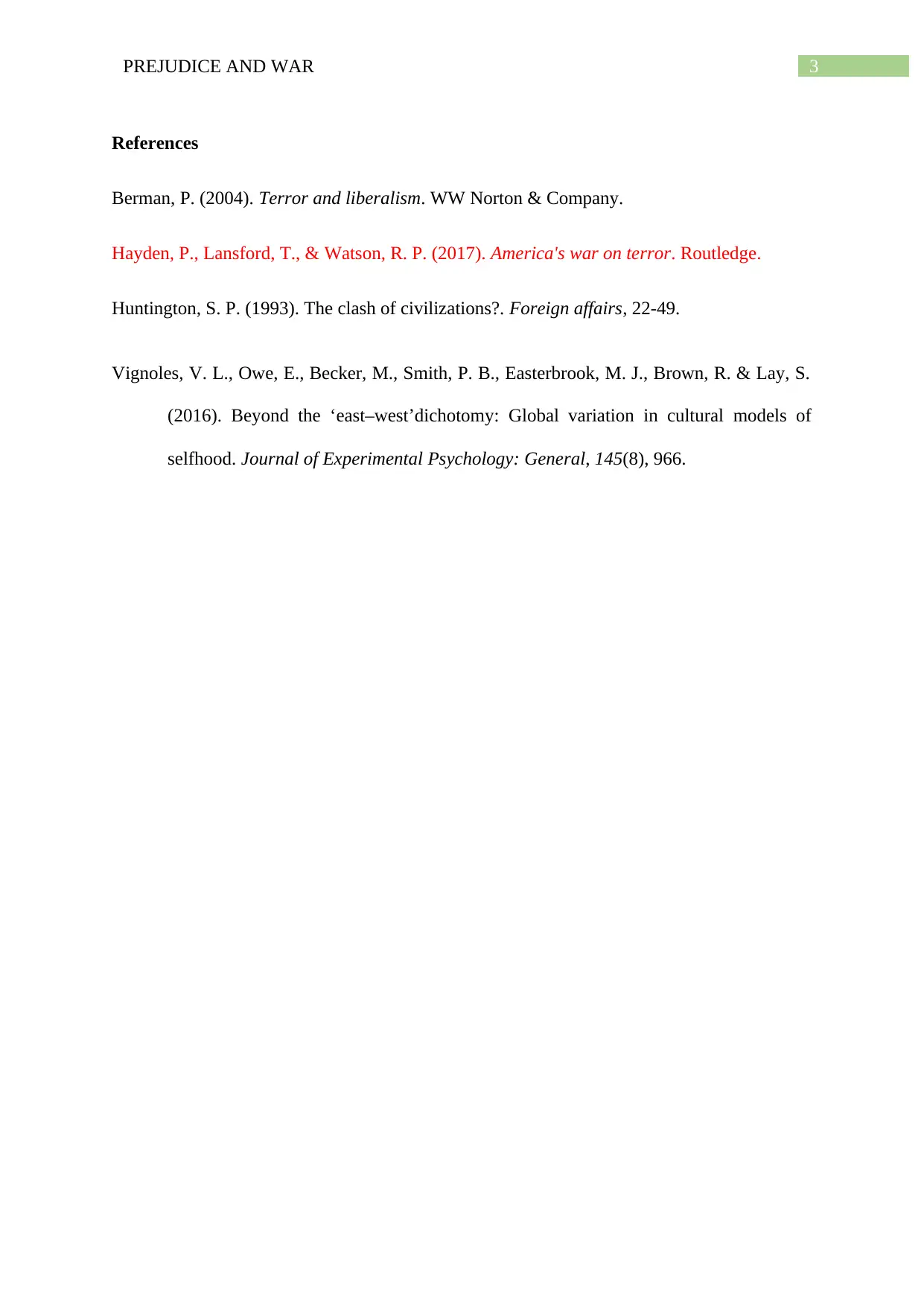A Comparative Analysis: Prejudice and War, Huntington versus Berman
VerifiedAdded on 2023/04/20
|5
|788
|425
Essay
AI Summary
This essay provides a comparative analysis of Samuel P. Huntington's "Clash of Civilizations" and Paul Berman's response in "Terror and Liberism," particularly in the context of understanding modern conflicts. Huntington argues that future wars would be rooted in cultural and religious differences, while Berman contends that philosophical beliefs are the primary drivers. The essay examines the core arguments of both authors, highlighting Huntington's prediction of a "West versus the Rest" scenario and Berman's critique of the distinctiveness of cultural boundaries. By referencing America’s war on terror, the essay ultimately aligns more with Berman's perspective, suggesting that ideological, economic, and political disputes are more relevant in contemporary conflicts than purely cultural clashes. It concludes that while cultural differences exist, they are not yet distinct enough to fuel the kind of widespread conflict Huntington envisioned, and the complete essay is available on Desklib.
1 out of 5








![[object Object]](/_next/static/media/star-bottom.7253800d.svg)